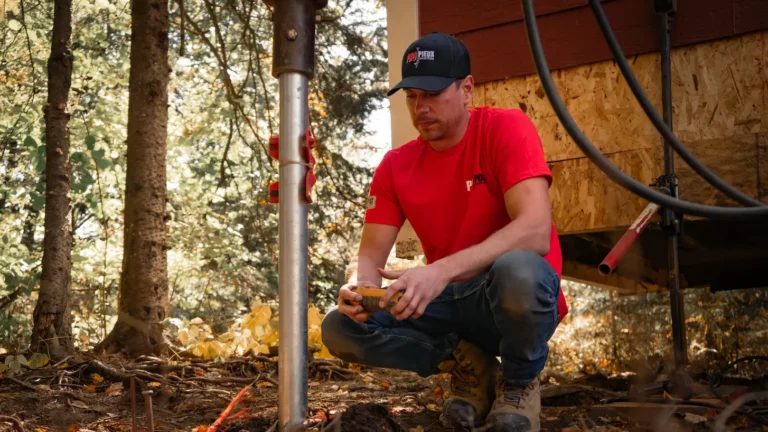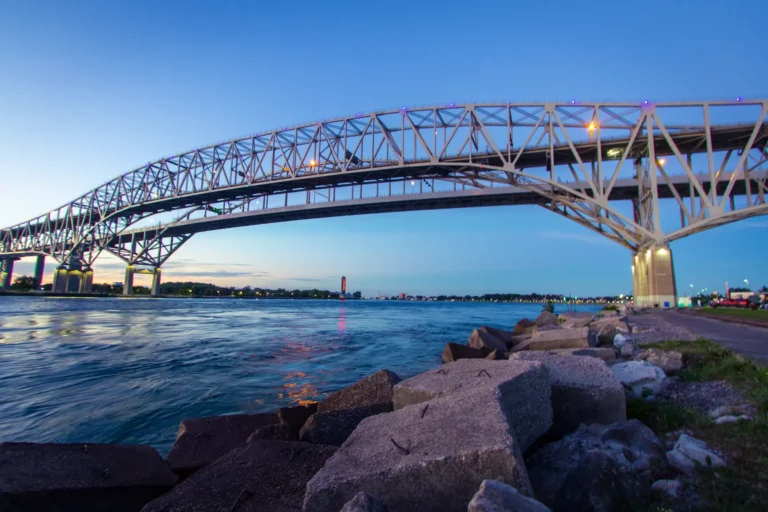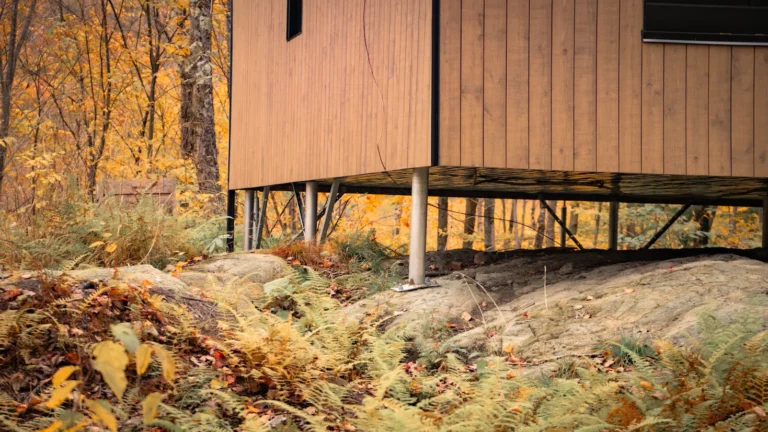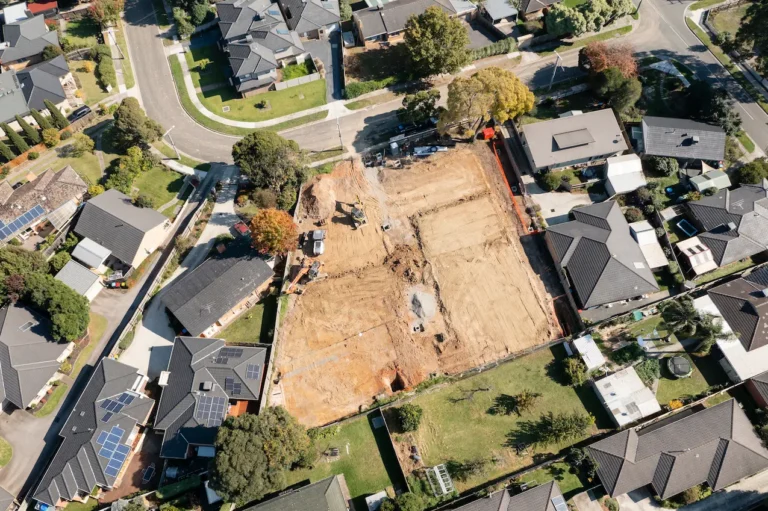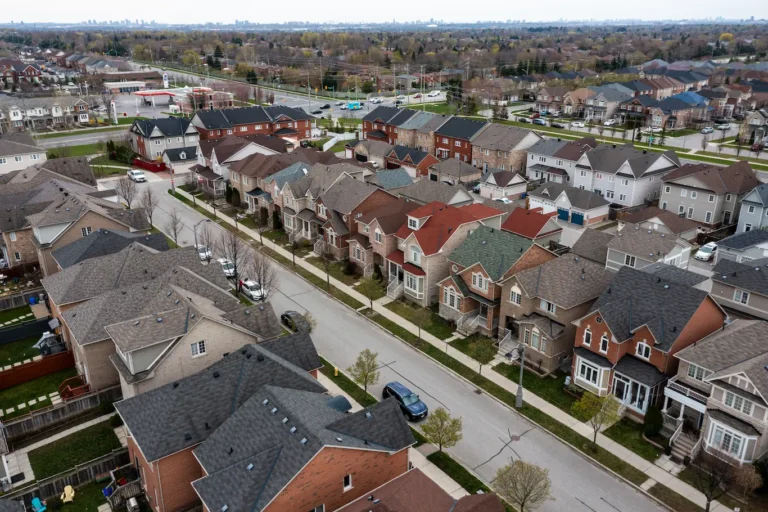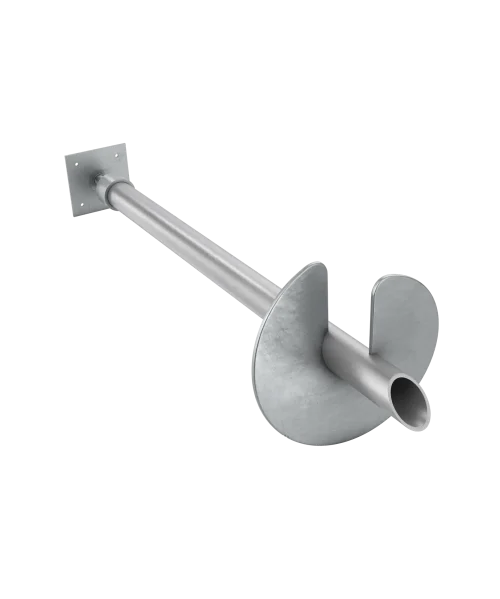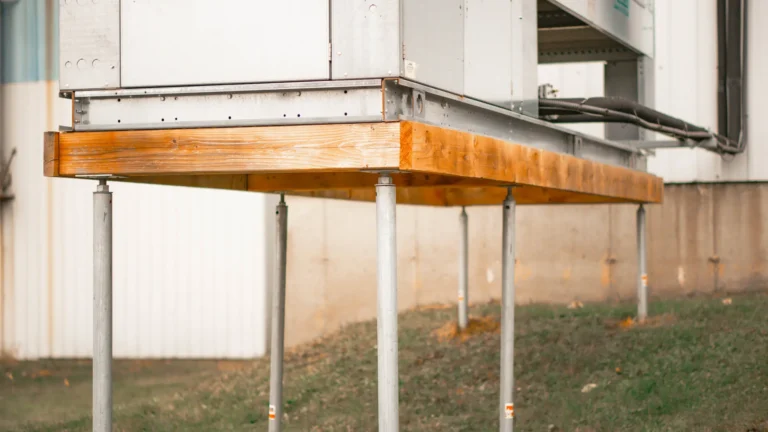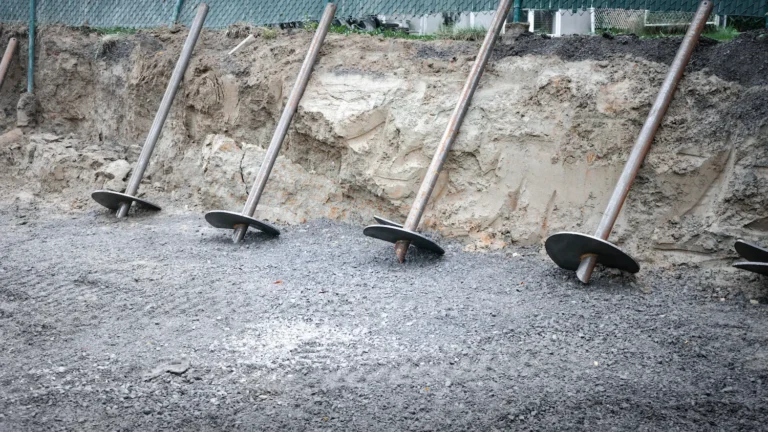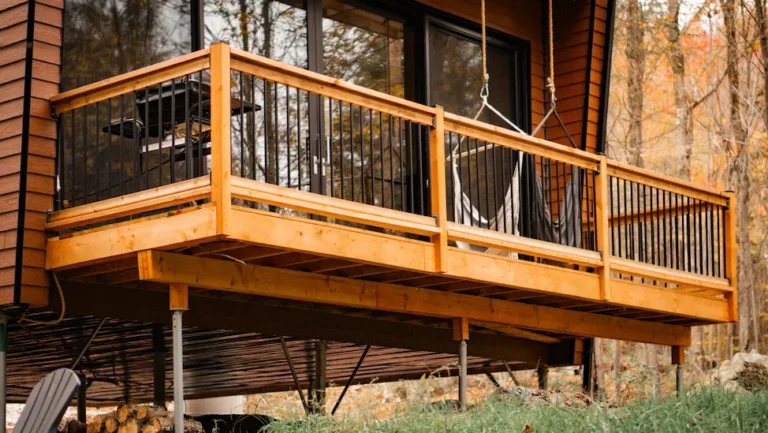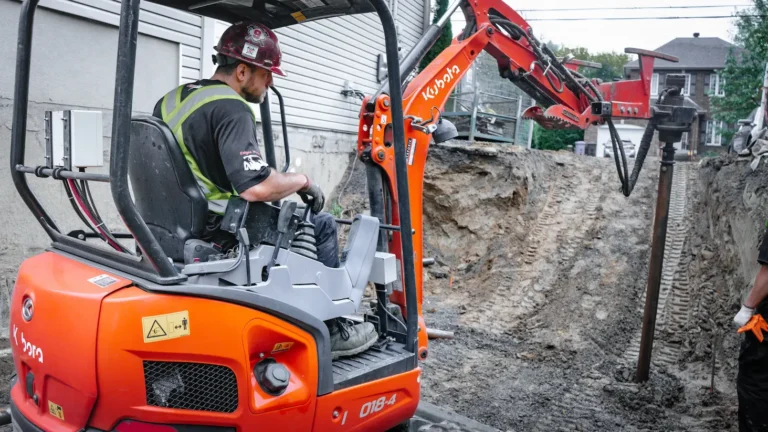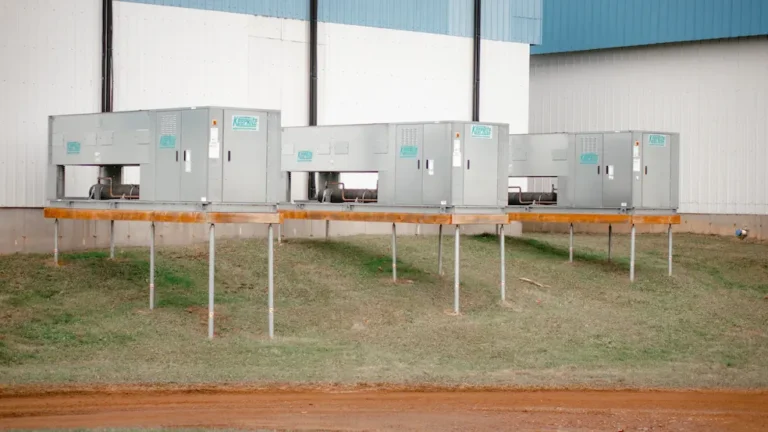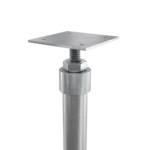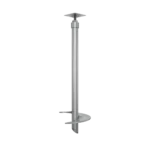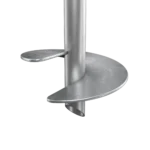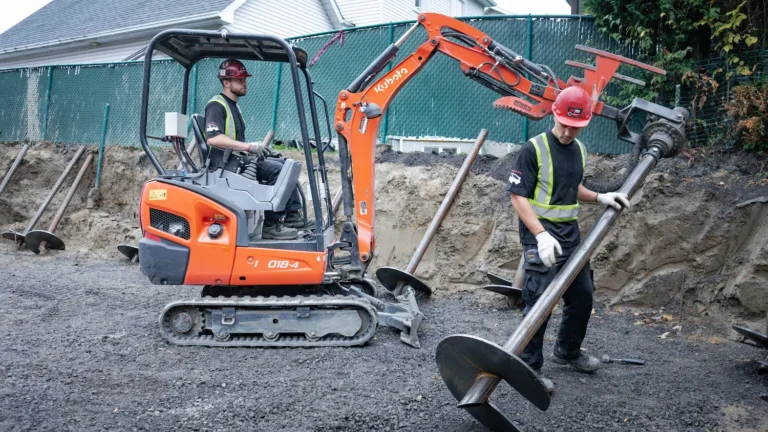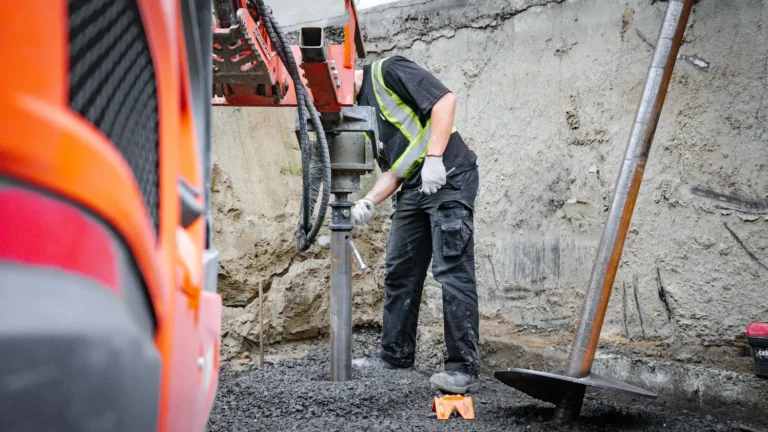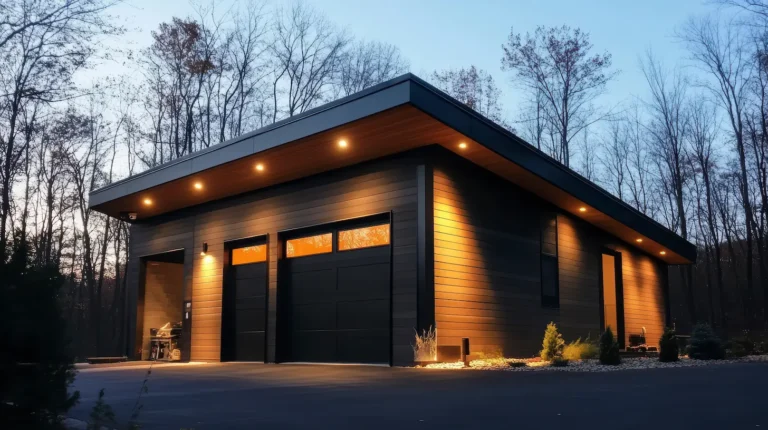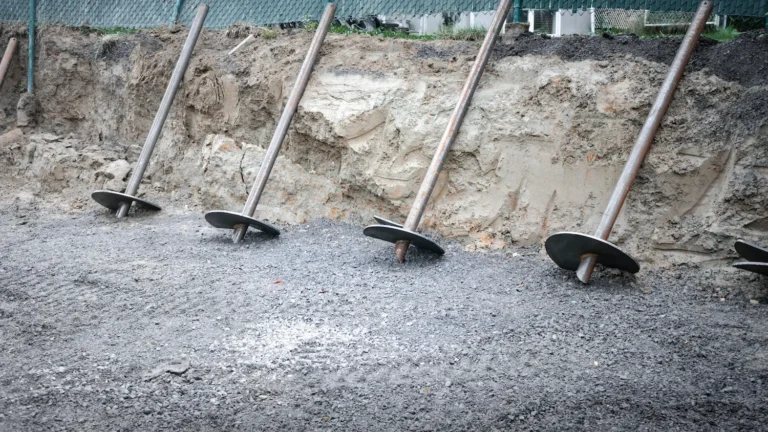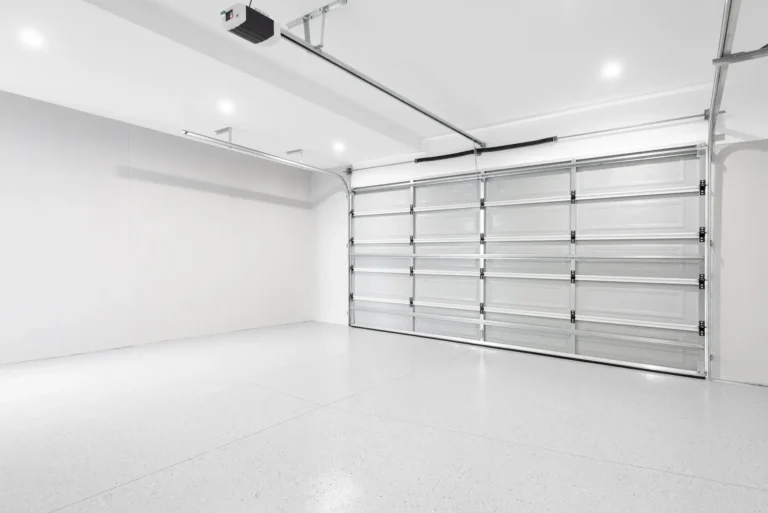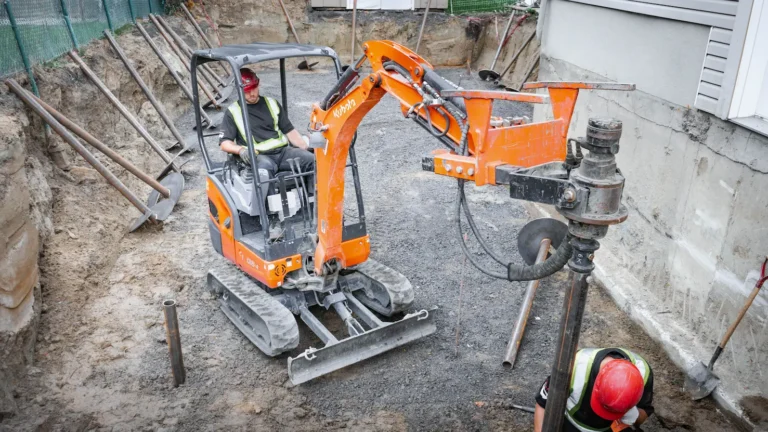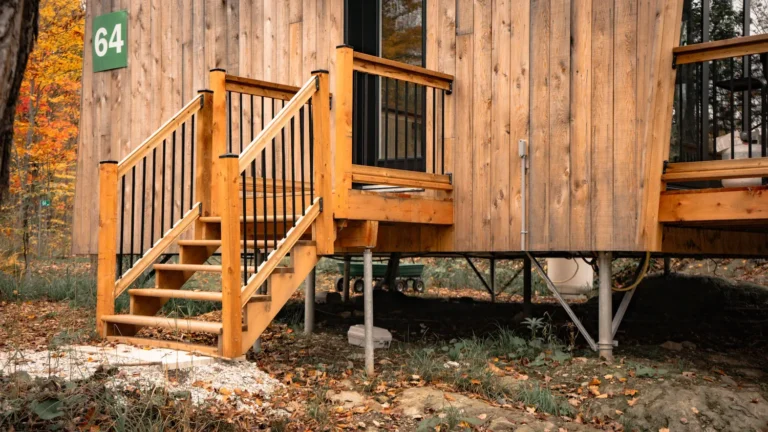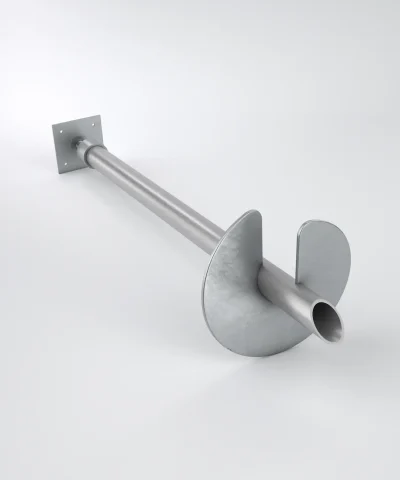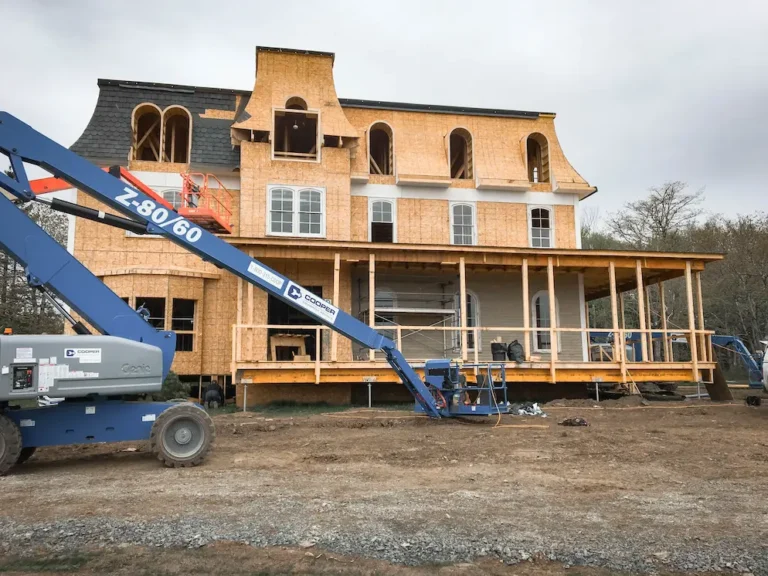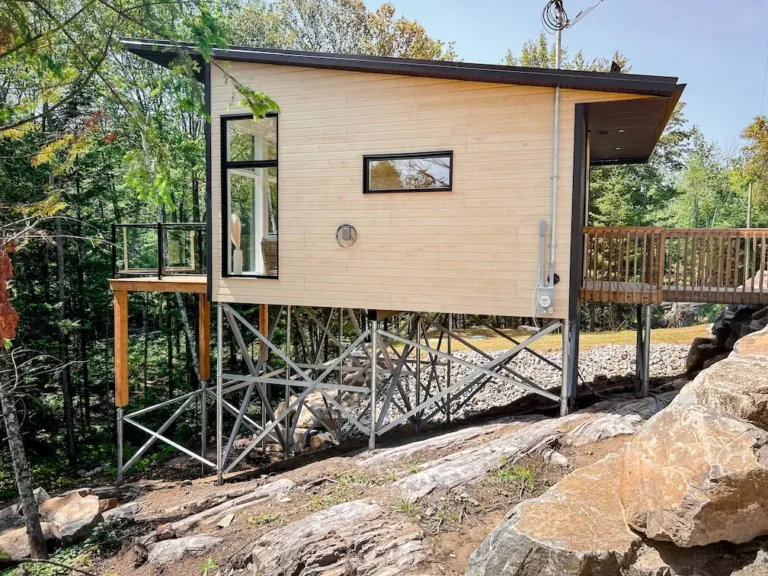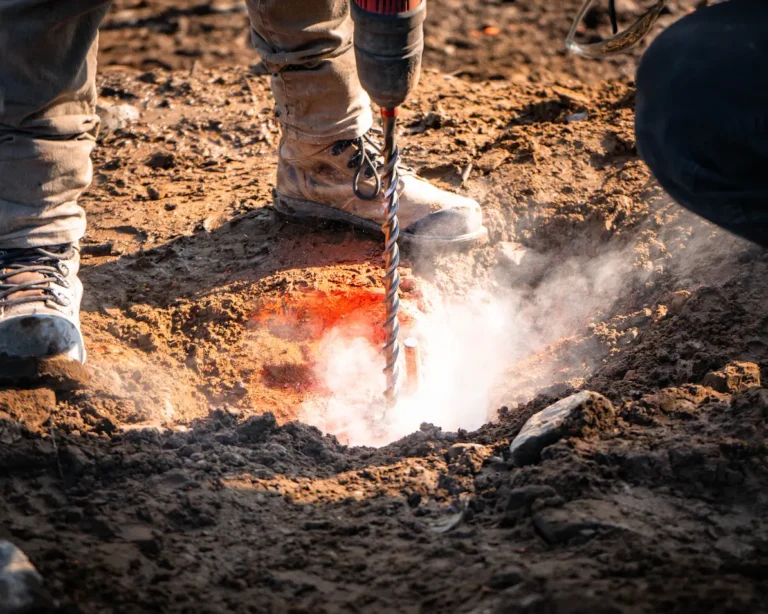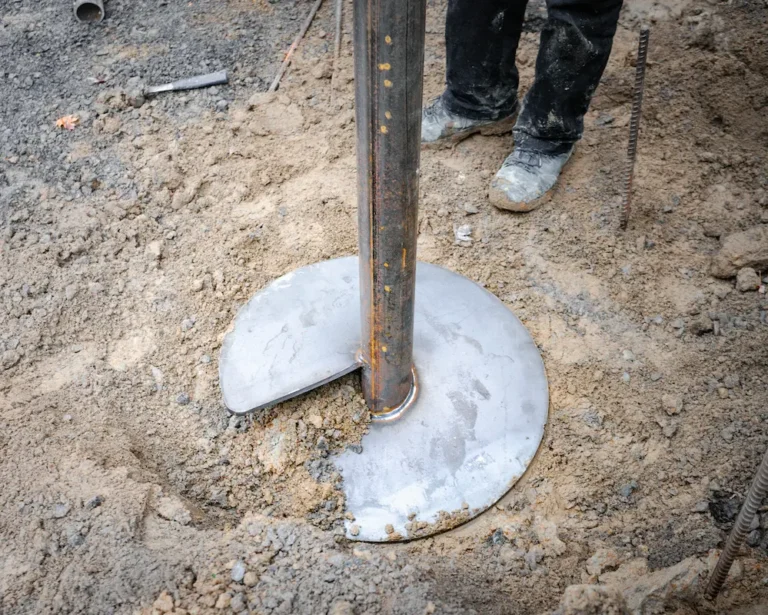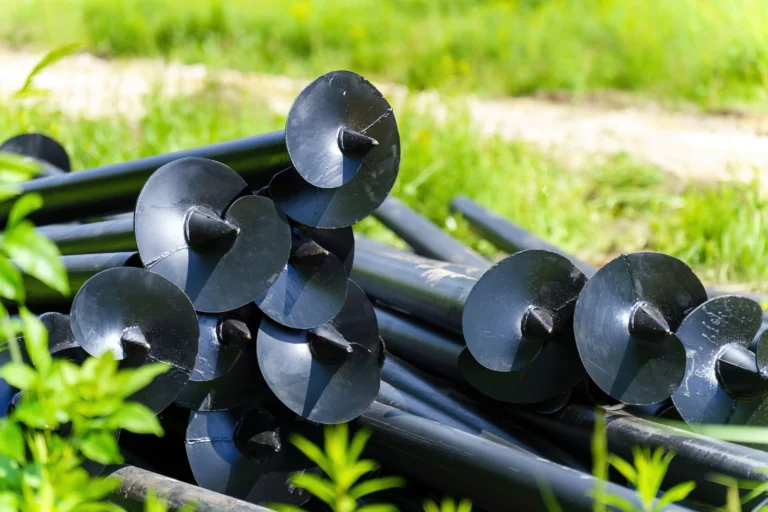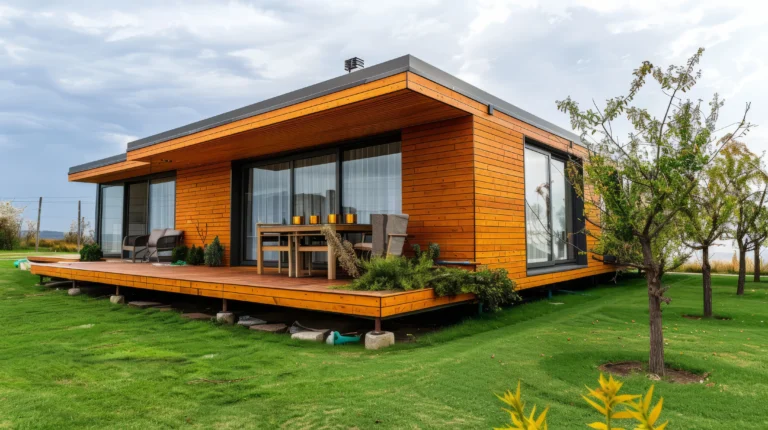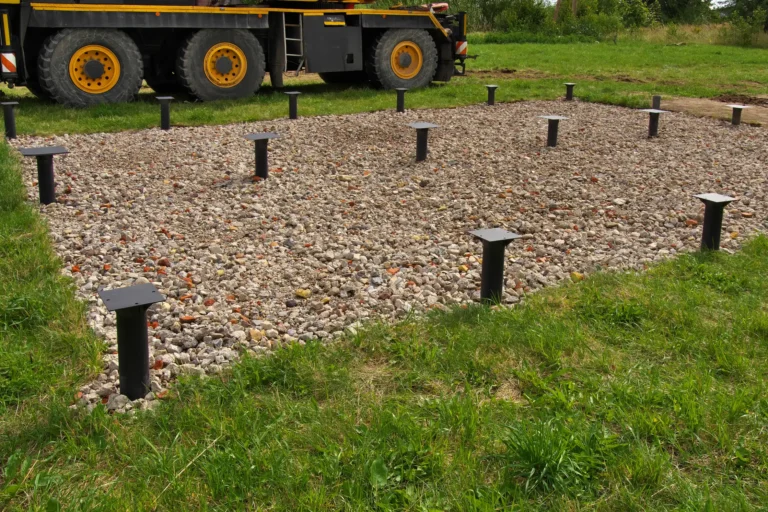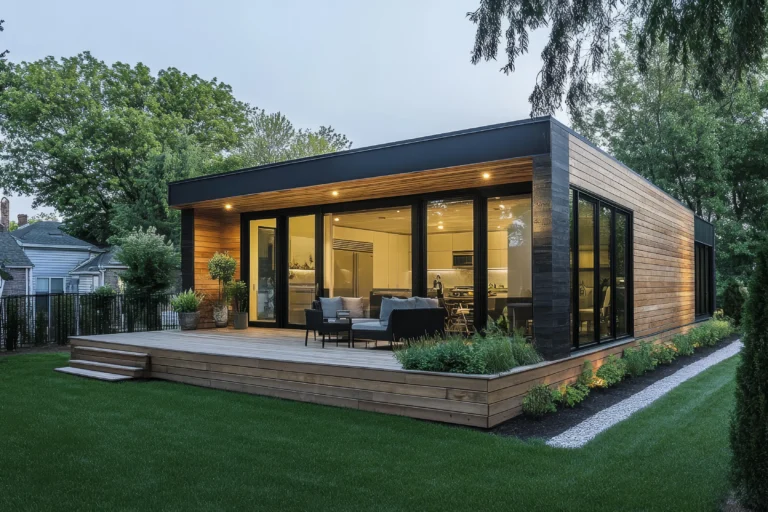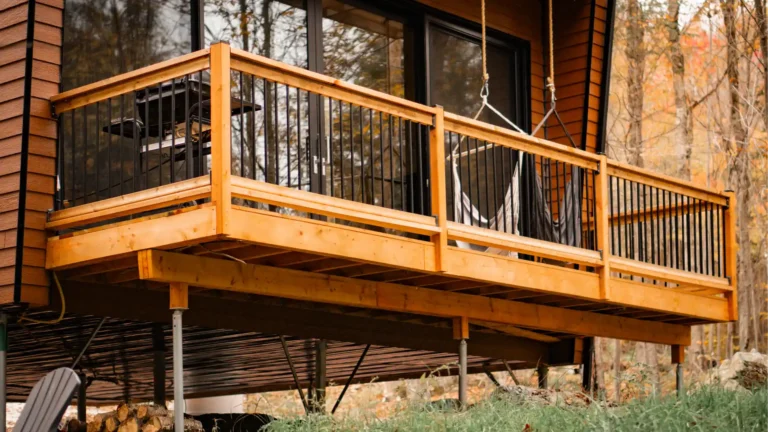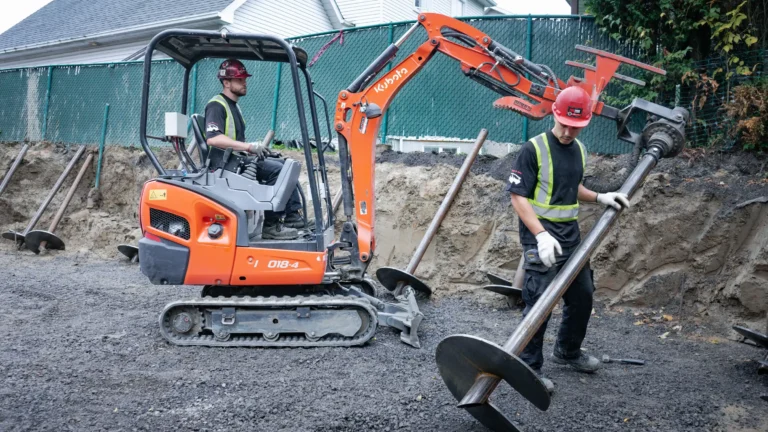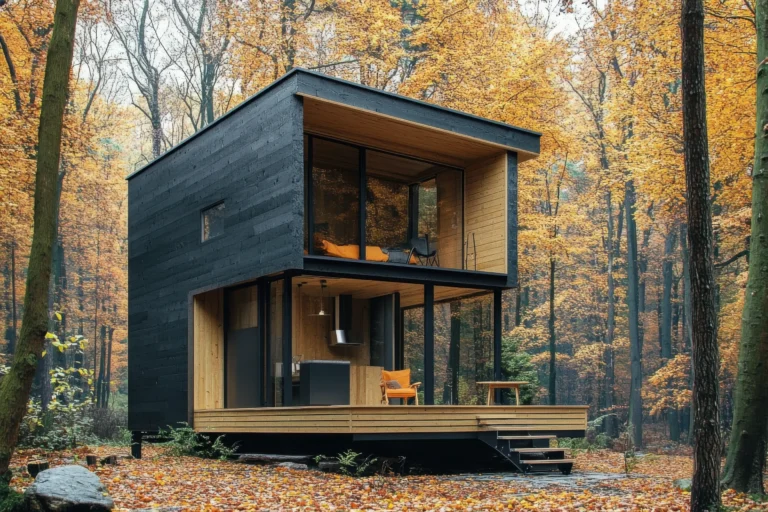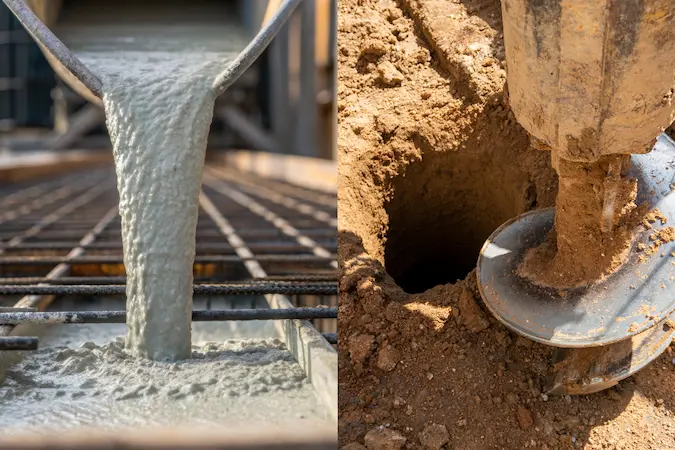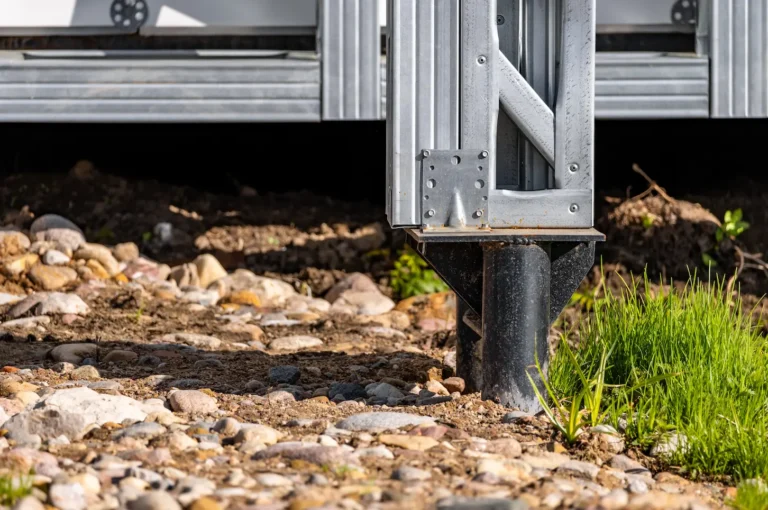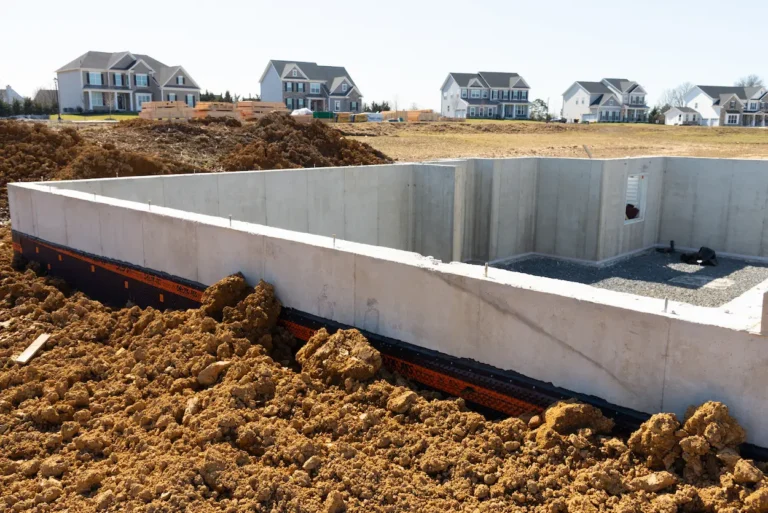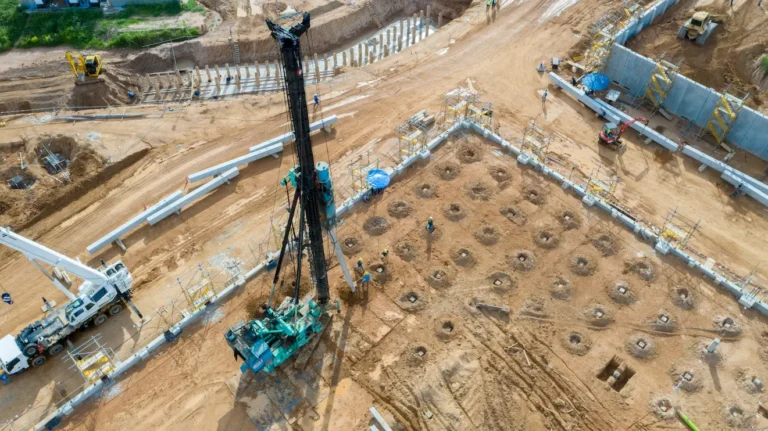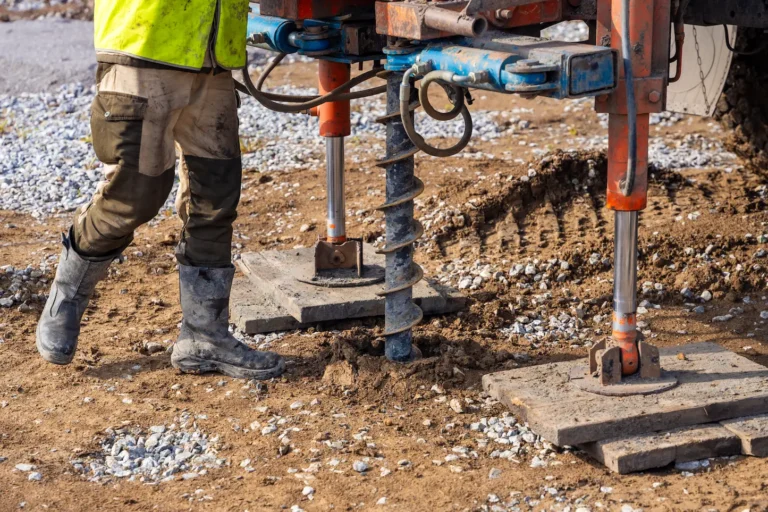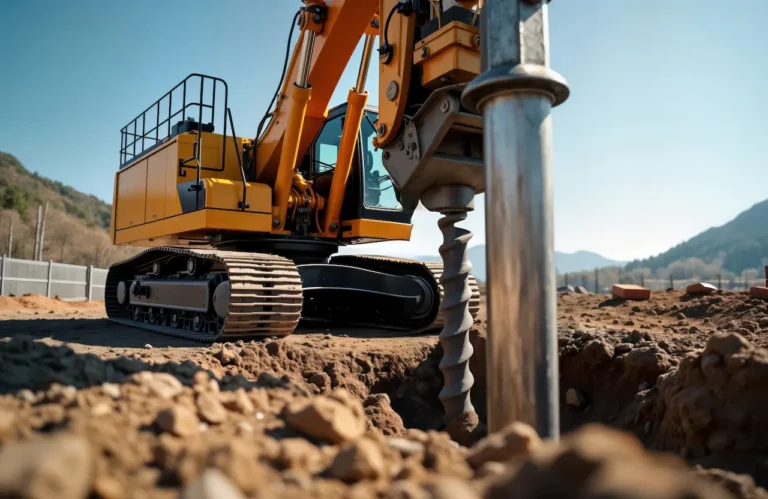In Wallaceburg, Ontario, screw pile prices start at $300, go to $500, and for very large projects, they average $650 to $1,000.
For a small foundation like a shed or deck, expect to pay around $2,000 – $7,000. And for a larger and heavier structure like a home addition, budget for at least $9,000 – $15,000.
- To help homeowners properly budget for their upcoming build, this guide was created to walk you through all the key costs, factors that affect pricing, and expert tips to get the best quotes.
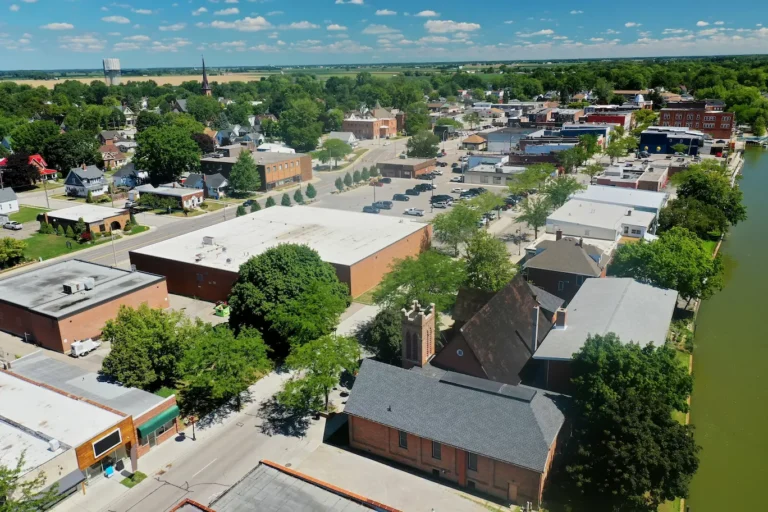
Should Wallaceburg homeowners invest in a screw pile foundation?
Yes, Wallaceburg homeowners should definitely consider investing in a screw pile (helical pile) foundation. These piles work for pretty much anything, like sheds, patios, decks, additions, you name it.
If you are wondering why piles are standing out, here’s the answer. They’re made from high-quality materials, installed super fast, incredibly durable, and let you start building right away without ruining your landscaping. With that kind of versatility, it’s easy to see why more and more homeowners trust screw piles.
The return on investment (ROI) for a pile foundation comes from accelerated project completion, reduced maintenance expenses over time, and an increase in real estate value.
How much does a screw pile cost in Wallaceburg, Ontario?
In Wallaceburg, professional-grade screw piles start at $300 and go up to $1,000 per pile. The price depends on the size and weight of the structure and the pile grade required.
That said, most everyday projects like decks, sheds, patios, and small additions tend to fall in the $300 to $500 range, which covers the majority of residential installations.
Shown below is a brief breakdown of pile grades and what you should expect to pay for each category.
| Pile grade | Project category | Average cost per pile |
|---|---|---|
| P1 | Small build | $300 |
| P2 | Medium build | $500 |
| P3 - P4 | Medium to large build | $650 |
| P5 | Large to very large build | $1,000 |
*Taxes are not included.*
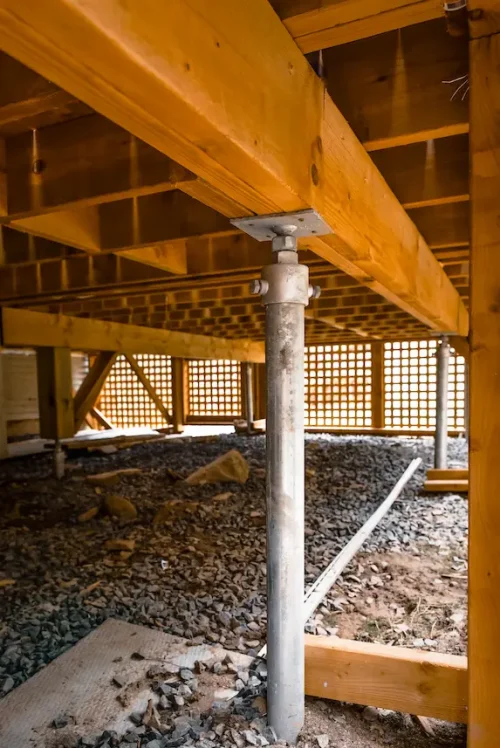
How much to budget for a screw pile foundation in Wallaceburg?
The budget for a small screw pile foundation suitable for sheds and simple decks stays on the low end. When the structure gets larger or heavier, more piles and deeper engineering are needed, which bumps the price up a bit.
And for very large or high-load projects, expect costs to land toward the higher end of the scale. Here’s a quick look at the typical homeowner’s budget:
| Foundation project | Average budget (pile + installation) |
|---|---|
| Small backyard shed or deck | $1,200 - $3,000 |
| Medium deck or light veranda | $3,800 - $7,000 |
| Home extension or heavy solarium | $9,000 - $15,000 |
*Taxes are not included.*
What drives screw pile prices in Wallaceburg?
Since every screw pile project is priced based on a few key factors, the final cost comes down to the soil conditions on your property, the weight of the structure and how many piles it needs, the pile grade and size required, and even the time of year you book the work.
Soil composition
The type of ground you’re building on makes a big difference. Soft, rocky, or uneven soil needs stronger, longer piles to hold your structure safely, which costs more. If the ground is solid and stable, fewer upgrades are needed, so the price stays lower.
Structural weight and number of piles needed
How heavy your deck, shed, or house is will decide how many piles you need. Bigger or heavier projects need more piles to spread the weight safely. More piles mean more materials and more labour, which raises the cost.
Pile grade, diameter, length, and extension
Not all piles are the same. Heavier or bigger structures require stronger steel, thicker piles, and sometimes longer ones to reach solid ground. If your soil is soft, you may even need extensions. All of these factors directly affect the price.
Seasonal demand
In the summer, prices go up because everyone’s booking at the same time and availability is limited. During the low season (late fall, winter, and early spring) there’s more availability, so you can usually get better rates.
Why do screw pile prices vary so widely amongst installers?
Screw pile prices vary so much in Wallaceburg because not every installer works to the same standard. Some companies use proper engineering, certified piles, and professional equipment. And others don’t.
Each company uses different engineering standards, manufacturing processes, and installation equipment. Some installers use certified, engineer-approved piles designed for long-term structural integrity. Others rely on cheaper materials that cost less but don’t perform the same.
The same thing goes for how they install them. Professional crews use torque-controlled equipment and follow strict load-capacity requirements. Lower-cost installers often skip steps like soil checks or torque verification, which is exactly why their prices look “too good to be true.”
On top of that, the level of insurance, training, warranty coverage, and overall experience varies a lot from one company to another. So when you see big differences in price, it’s usually reflecting big differences in quality, engineering, and professionalism.
What’s the cost of helical piles for a deck in Wallaceburg?
To give you a proper example, here’s a quote presented to one of our clients.
Project description:
- Backyard deck 12’ x 16’
- Light load: no heavy spa or masonry, just wood deck and railing
- Soil of typical Ontario suburban type (not overly rocky, no extreme soil issues)
- Professional installation with engineering-approved piles
Helical pile foundation:
- 6 piles (P1): unit cost at $300 (installation included)
- Pile head
- Labour
- Equipment
- Cleanup
| Foundation | Amount |
|---|---|
| 6 x P1 | $1,800 |
| Subtotal | $1,800 |
| GST/HST | $234 |
| Total | $2,034 |
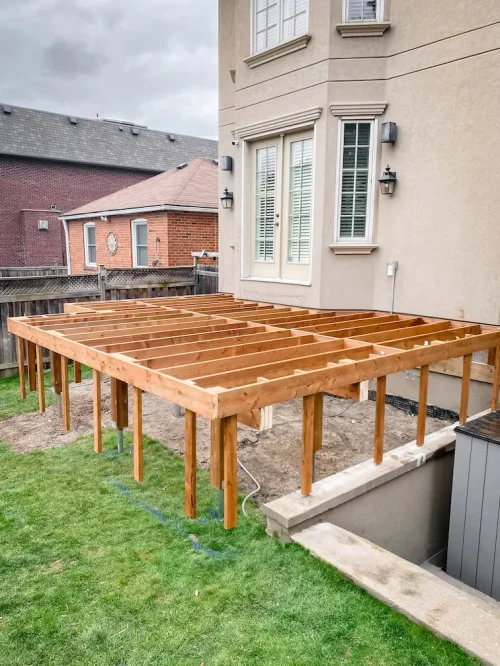
How to control the cost of your screw piles foundation project in Wallaceburg?
If you want to keep your screw pile project from getting too expensive, it all comes down to working with the right people and having the right information. Avoiding overpriced quotes isn’t complicated. You just need to stick with qualified installers, ask the right questions, and compare offers properly.
Reach out to verified, experienced and insured experts
Start by contacting verified, experienced, and fully insured installers. These professionals follow proper Canadian engineering standards, use certified materials, and charge fair prices.
On the other hand, unverified installers may cut corners or inflate prices because most homeowners don’t know what a fair price should be.
Ask for detailed and customized quotes
A quote should always detail the number of piles, pile specifications, installation depth, torque requirements, and warranty information. If an installer refuses to break things down, that’s a red flag and a sign that the price doesn’t match the materials or the work.
Compare quotes from multiple local companies to make sure you were offered the best deal
The easiest way to know if you’re being charged fairly is to get at least 3 quotes from local installers. Comparing them side by side makes overpriced or incomplete offers obvious.
How to choose the right helical pile company in Wallaceburg?
Choosing the right helical pile company in Wallaceburg comes down to their experience, reputation, equipment, and professionalism. A trusted installer will be upfront, properly equipped, and able to prove they know what they’re doing before you spend a single dollar.
What to look for:
- They’ve done projects just like yours before
- Their past customers have good things to say about them
- They use real professional-grade piles, CCMC-certified, and the right equipment
- They give clear, detailed quotes, not random numbers with no explanation
- They’re fully insured, and they back their work with a valid warranty
Questions to ask:
- Have you done this type of project before?
- Can you show me recent customer reviews or give me a couple of references?
- What grade and diameter of piles are you using, and why those specifically?
- What exactly is included in your quote, and what could cause the price to go up?
- Are you fully insured, and what does your warranty cover?
A professional installer will answer your questions confidently, show you proof, and make everything easy to understand. But if someone seems unsure, keeps things vague, or tries to rush you into saying yes, that’s usually your cue to walk away.
FAQ - Screw pile foundations in Wallaceburg
What is a screw pile?
A screw pile is a steel post used to build a foundation. Each pile is made of a helical blade, shaft, and head. Screwed into the ground, they are used to support different kinds of residential and commercial structures.
Are screw piles more expensive than concrete?
Overall, screw piles are less expensive than concrete. While they could require a bigger upfront investment, in the long run, they win. With a faster installation, reduced labour charge, absence of maintenance and superior lifespan, they bring more value.
How long does it take to install screw piles?
Depending on the number of piles needed and the complexity of the residential project, it takes a few hours to complete.
Can I install screw piles myself?
For a very small project, it is feasible. But for a larger build, it is strongly advised to hire professionals with the right expertise.
Can you build a house on screw piles?
Yes, you can. It is especially interesting for tiny houses, waterfront houses, and houses built on steep or uneven land.
How long will screw piles last?
Engineered screw piles made of galvanized steel last for 50 to 75 years or more.
Helical Piles Cost Calculator - Get up to 3 Free Quotes from Wallaceburg Experts!
Our team is here to help you find the best screw pile company at the right price. We work with pre-selected, experienced helical pile experts in Wallaceburg and nearby towns. If you want to try us, you won’t have to worry about hiring the wrong installer.
- Start by filling out our form, tell us about your project, and wait for our partners to contact you. Compare the quotes you received, pick the best option, and mark your calendar.
Every successful build starts with a proper foundation!

